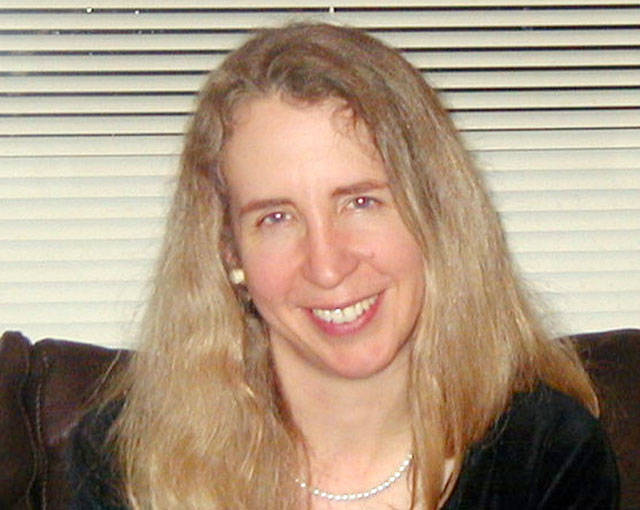Down at the Port of Tacoma, a massive 8 million gallon, 14-story tank looms over a busy construction site. A huge project of PSE, this tank will hold liquefied natural gas (LNG), which PSE plans to sell to the shipping industry for LNG-powered container shipping. PSE touts this as an emission-reducing plan using a “bridge” fuel, although TOTE Maritime, for instance, is already in compliance with low sulfur emission fuel standards, and the shipping and trucking industries are largely moving into renewables for the future.
PSE is a for-profit corporation owned by a consortium of Canadian investments firms. Notably, the PSE CEO currently heads the board of the American Gas Association, a trade group representing LNG suppliers. The project has received millions in tax breaks and a huge public subsidy passing 43 percent of the capital costs to PSE ratepayers (some $130 million), while only about 7 percent of the refinery LNG is planned for customer use. Washingtonians cannot afford this plant for multiple reasons.
This plant is unneeded at a time when conservation and the transition to renewables is essential to mitigating the worst of climate change. This transition is already happening in Washington by many of the other utilities in the state. Electricity in Washington is distributed though 63 nonprofit utilities (Public Utility Districts, co-ops or municipalities) and three for-profit companies, including PSE. Almost 60 percent of the energy PSE provides is fossil-fuel based. PSE and the other two for-profit utilities supply over 80 percent of Washington’s fossil-fuel based energy. Most of the nonprofit utilities get their power from the federal BPA, which is hydro- or nuclear-based, cheaper and 97 percent carbon free.
Natural gas is only natural when it is underground, along with coal and oil.
LNG leaks methane at every point from extraction to distribution to consumption.
Methane is up to 87 times more potent a greenhouse gas than carbon dioxide. Scientists estimate that it would only take a 3 percent leak of fracked methane to make its overall effects worse than coal. This is within estimations of methane leakage from start to finish along the supply chain. Most LNG is fracked, using toxic chemicals and vast amounts of water, causing severe environmental destruction, fresh water contamination and serious public health risks. The plant is being built near a fault line in a dense urban area. The gas is compressed at -260 F to remain liquified and is highly flammable if exposed to air and vaporized; the estimated blast zone has a 3-mile radius encompassing much of Tacoma. In March 2014 an explosion at a Plymouth, Washington, LNG facility injured five people and prompted a complete evacuation within a 2-mile radius. Public health and safety should not be put at risk for a project benefiting only the profits of the fossil fuel and fracking industries.
The Puyallup Tribe has steadfastly opposed the PSE LNG plant as the location on the tide flats violates treaty fishing and land rights. The tribe has filed lawsuits and petitions, and resolutions have been signed by numerous Northwest tribes, the City of Seattle, Washington State democratic caucuses and legislative districts, and over 53,000 concerned citizens. Significantly, charges of trespassing against an activist engaged in civil disobedience at the plant last December were given the verdict of not guilty by jury trial in the Tacoma Municipal Court, recognizing Puyallup Tribal permission for the action on their claimed land over the charges pressed by PSE.
The plant construction is continuing despite an incomplete permitting process.
Puget Sound Clean Air Agency is conducting an analysis and review of the life cycle of greenhouse gas emissions caused by the LNG plant. This supplemental environmental impact statement (SEIS) study needs to be completed before further required permitting is granted. On Oct. 30, the agency will hold a hearing for public commentary at the Rialto Theatre in Tacoma. Commentary can also be submitted online through Nov. 15. This is our next best opportunity to oppose the permitting of the PSE LNG plant.
Only the public will halt this project, and the struggle has precedent. In 2016, a China- backed consortium canceled plans to build a multibillion dollar massive methanol export facility planned for the Tacoma tide flats after consistent opposition from Tacoma residents. Islanders will never forget how the dogged resistance of dedicated residents stopped a Japanese mining corporation from plans to strip mine Maury Island. Now the site is a park. Please add your voice however you can; it is worth the effort. Please email Vashon Climate Action at suzanneggreenberg@gmail.com for commentary, attendance and carpool information. Submitting online comments should also be available through the PSCAA website.
— Maia Syfers is an island resident of 12 years working as a nurse practitioner in Tacoma, and a member of the Vashon Climate Action group.



